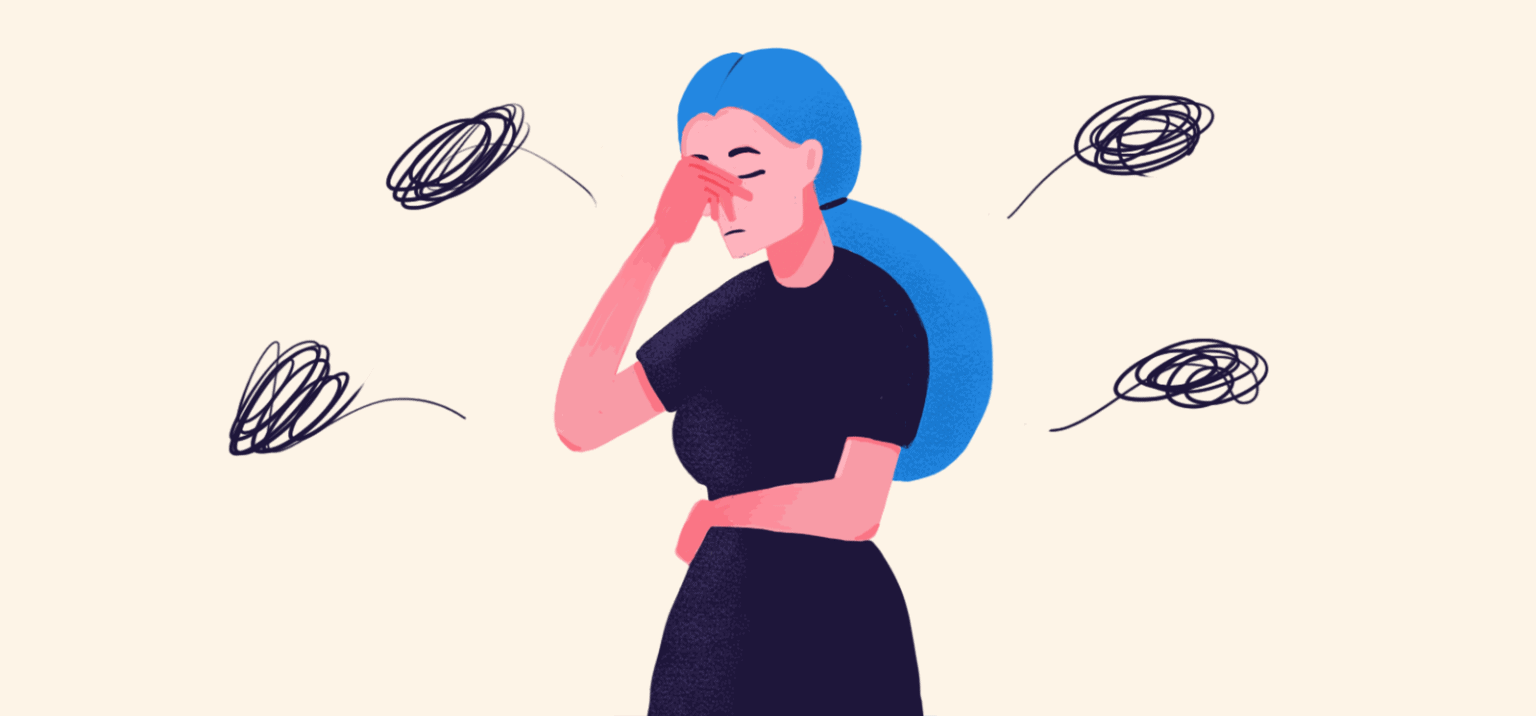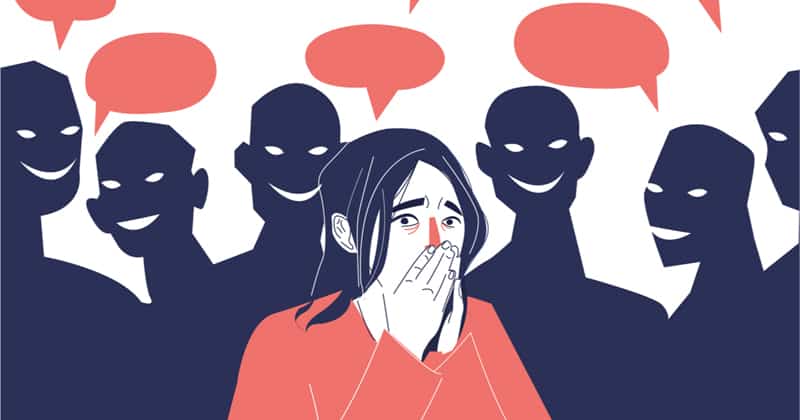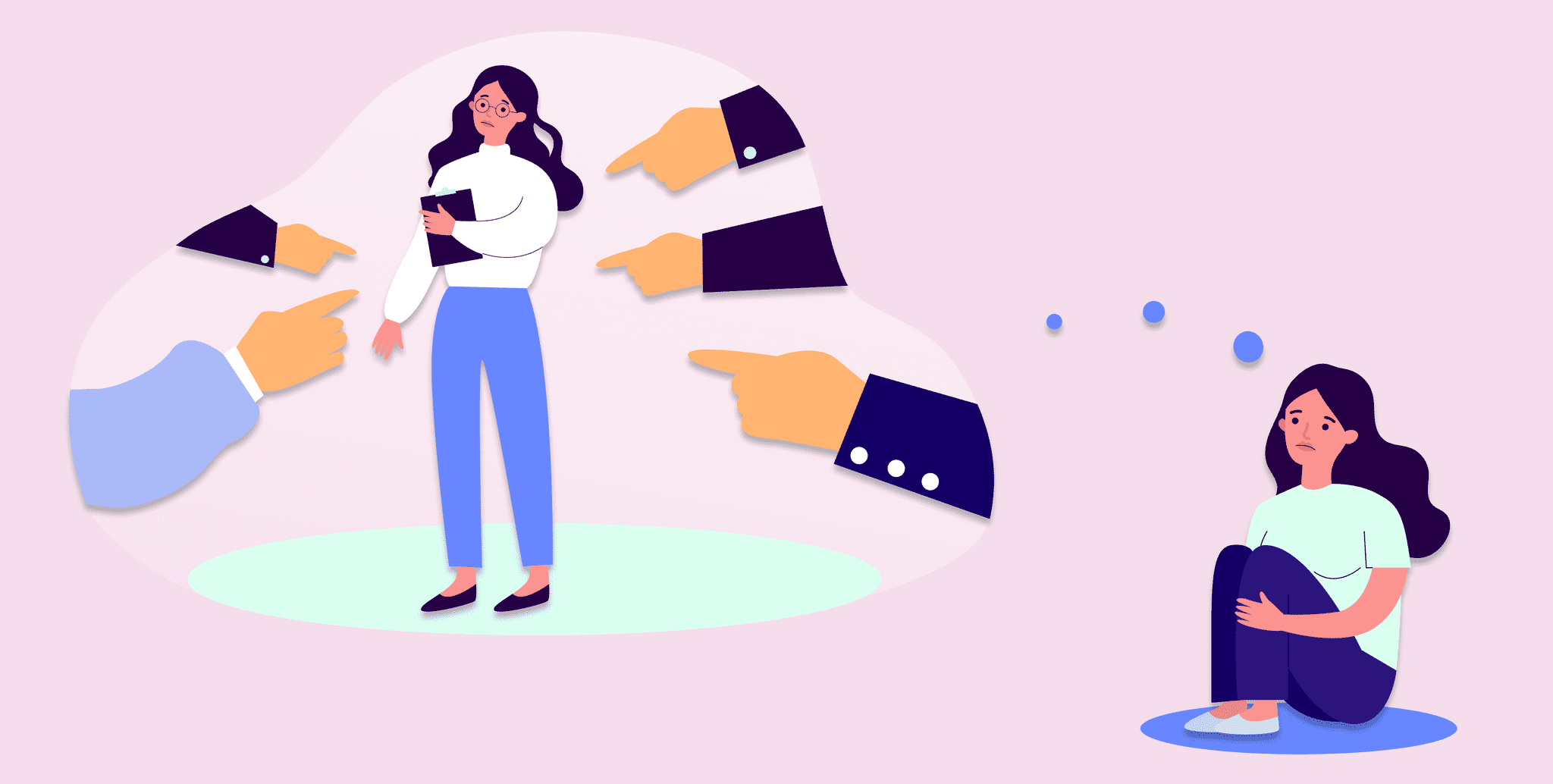In 2016, the number of people estimated to be suffering from mental health issues like depression and anxiety amounted to roughly 1.1 billion. Since then, numbers have likely continued to rise. Moreover, studies have also shown women especially on average are a) more likely to suffer from mental health issues, and b) less likely to talk about them. The taboo in Pakistan surrounding depression and anxiety disorders only serve to aggravate the individuals suffering even more. For the women who cannot seek out full time therapy, we’ve enlisted the help of a trained therapist. You sent us in your questions – here are the answers!

“I am 23-years-old and I wanted to share my problem with you. I have done BBA, but I am still facing these problems at this age – I become very tense at many moments like when I am going to a doctor or asking my teacher anything. I feel pain in my stomach due to this social anxiety and I don’t know how to make friends or how to talk to someone – my hands start shivering when I feel nervous. People in my class are very social and they don’t like this behaviour and neither do I. I also want to be social like other girls but I don’t know how to do this. I feel anxious about what they will say if I ask them something or what if they don’t reply to me because I said something rubbish. If you could give me advice for this, I would really appreciate it.”

Shahrukh’s Response:
Hi Anon,
I can really empathize with you in this scenario. Anxiety in itself can be so difficult to experience, and I can only imagine what it’s like for you when the trigger of your anxiety is being in a social situation. Let me start off by saying that this is something that is more common than most people realize, I’ve come across so many others who describe feeling similar in the same circumstances. You are not alone in this. Let’s explore some of the themes behind social anxiety, as well as some possible coping mechanisms.
Social Anxiety: What Are You?
You enter a room full of people, your heart begins to race, your palms are sweaty, perhaps you experience shortness of breath, your stomach churning, you may even want to avoid eye contact and just hope that people don’t engage with you. Sound familiar? These are some common physiological symptoms of people who experience social anxiety. So, what is happening? What’s making the body respond this way?
When we talk about the physiology of anxiety, we learn that our body’s nervous system is wired and trained to warn us whenever we’re in any kind of perceived danger. Let’s say if we run into a bear, we will immediately feel a rush of adrenaline, our heart rate would rise, our breath a little heavier, a tightness in the chest etc. This is known as the body’s fight or flight response. It’s preparing itself to either fight the danger or flee. This response is so innate, and overtime it has evolved, as our ideas of perceived danger have changed.
As humans, we have this need to belong, and this fear of being rejected. Social Anxiety, by definition, is a fear of being negatively evaluated, judged or rejected. People who experience it would generally have a history of early childhood rejection, bullying, shame, feelings of low self-worth, family conflict or even abuse. One of the biggest core beliefs of someone with social anxiety is low self-worth – this mostly revolves around the idea that they believe that others are okay and deserving of love and acceptance, while they themselves are unworthy. They live in constant fear of being rejected and that they will easily be rejected if they were to engage with others.

Coping With And Working Through Social Guide
The good news is that our brains and body are constantly being rewired. This might take some time and work, but it can be done. Here are some things that have proven to be effective treatments and practices for those living with social anxiety:
- Therapy: the roots of social anxiety can be a lot deeper than we realize, it might be helpful to seek out the guidance of a therapist. They will be able to hold space for you as you explore your patterns and personal history. They would also be able to help you actively manage your symptoms for social anxiety (I would personally recommend a therapist who practices CBT, as well as some form of body work, if possible).
- Mindfulness and Self-Compassion: one of the practices that one can really benefit from is mindfulness and self-compassion. The idea of this practice is to help an individual foster a stronger sense of acceptance and compassion towards the self. To get an idea of what self-compassion is, I would really recommend Tara Brach’s “Radical Acceptance: Awakening the Love that Heals Fear and Shame” and Kristen Neff’s “Self-Compassion: The Proven Power of Being Kind to Yourself”.
- Support Groups: There are several support groups you can find online. In Pakistan, you can also reach out the Trauma Release and Wellness centre in Karachi. They have support groups for victims of different kinds of trauma. It may help to know that you are not alone, and that others are struggling in their own way.
Anon, living with social anxiety can be so difficult, and again, I really do feel with you. Just know that you can get through this and that you are not alone. I hope that you were able to find the answers and help that you were looking for here. I wish you all the best on your journey towards and healing. Best of luck and stay in your power!

The above article is written by Shahrukh Shahbaz Malik who is trained in humanistic integrative counselling at CPDD in the UK and currently has her own private practice in Karachi. The views expressed in this article are those of one expert. They do not necessarily represent the views of Mashion, nor do they represent the complete picture of the topic at hand. This article is for informational purposes only and is not a substitute for medical diagnosis or treatment.







What do you think?
You must be logged in to post a comment.